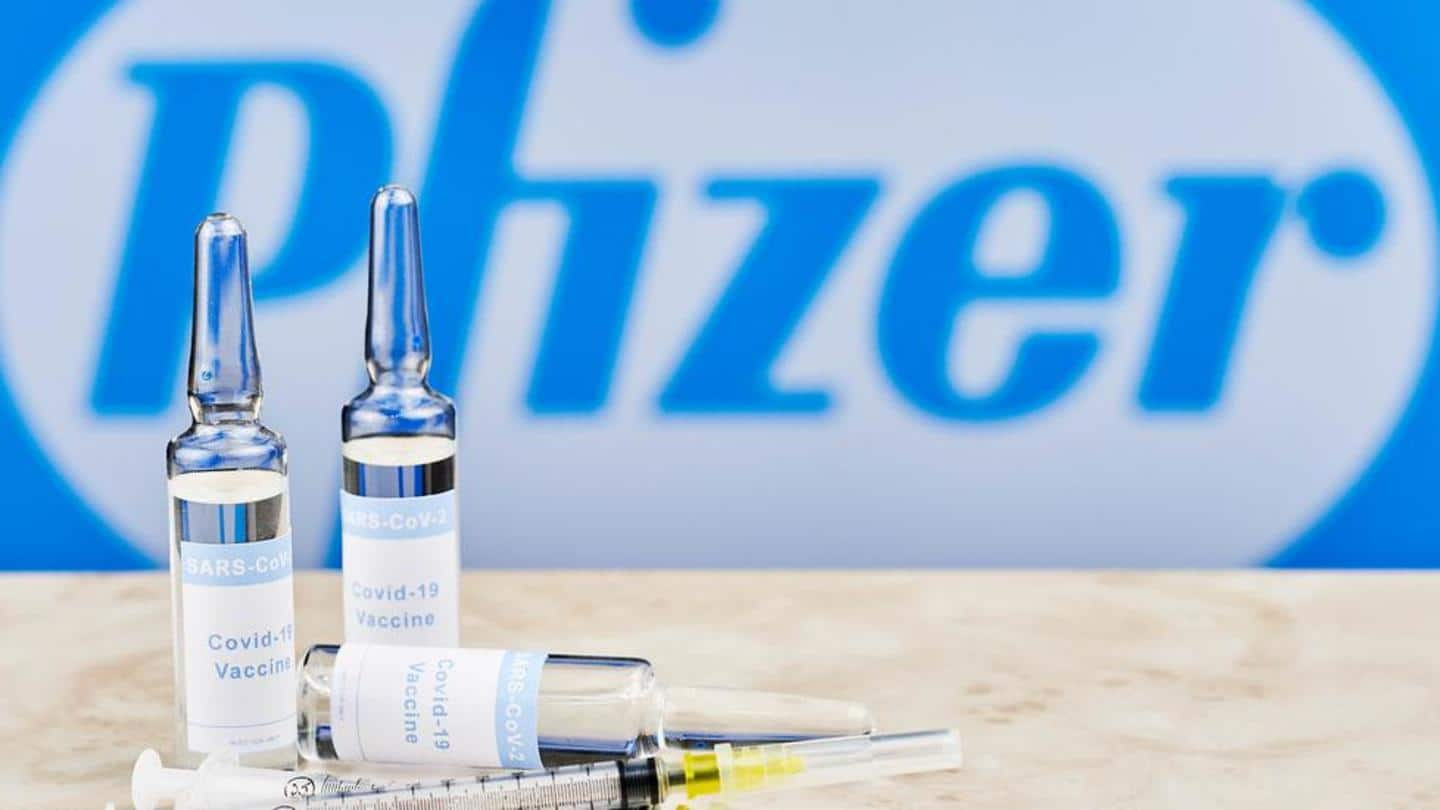
US expands Pfizer COVID-19 shot to children 12 and above
What's the story
COVID-19 vaccines finally are headed for more kids as US regulators on Monday expanded the use of Pfizer's shot to those as young as 12, sparking a race to protect middle and high school students before they head back to class.
Shots could begin as soon as a federal vaccine advisory committee issues recommendations for using the two-dose vaccine in 12-15-year-olds, expected on Wednesday.
Canada
Canada was first country to expand vaccine to kids
Vaccinating children of all ages will be critical to a return to normalcy. Most COVID-19 vaccines rolling out worldwide have been authorized for adults. Pfizer's vaccine is being used in multiple countries for teens as young as 16, and Canada recently became the first to expand use to 12 and up.
Many others are anxiously awaiting the shot to become available to more kids.
Effects
Study found no cases of COVID-19 among fully vaccinated adolescents
The FDA declared the Pfizer vaccine is safe and offers strong protection for younger teens based on testing of more than 2,000 US volunteers ages 12 to 15.
The study found no cases of COVID-19 among fully vaccinated adolescents compared to 18 among kids given dummy shots.
Researchers found the kids developed higher levels of antibodies than earlier studies measured in young adults.
Authorization
Pfizer-BioNTech recently requested similar authorization in the EU
The younger teens received the same vaccine dosage as adults and had the same side effects.
Meanwhile, Pfizer and its German partner BioNTech recently requested similar authorization in the European Union, with other countries to follow.
The latest news is welcome for US families struggling to decide what activities are safe to resume when only the youngest family members remain unvaccinated.
Normalcy
Families are skeptical to resume activities with unvaccinated kids
"I can't feel totally comfortable because my boys aren't vaccinated," said Carrie Vittitoe, a substitute teacher who is fully vaccinated as are her husband and 17-year-old daughter.
The FDA decision means her 13-year-old son soon could be eligible, leaving only her 11-year-old son who would be unvaccinated.
"We can't really go back to normal because two-fifths of our family doesn't have protection," Vittitoe said.
Other companies
Moderna and Novavax are also conducting similar studies
Pfizer isn't the only company seeking to lower the age limit for its vaccine. Moderna recently said preliminary results from its study in 12 to 17-year-olds show strong protection and no serious side effects.
Novavax has a vaccine in late-stage development and just began a study in 12 to 17-year-olds as well.
Next up is testing whether the vaccine works for even younger children.
Younger kids
Studies in children six months to 11 years have started
Both Pfizer and Moderna have begun studies in children ages six months to 11 years. Those studies explore whether babies, preschoolers, and elementary-age kids will need different doses than teens and adults. Gruber said Pfizer expects its first results sometime in the fall.
Outside of the US, AstraZeneca is studying its vaccine among 6 to 17-year-olds in Britain.
Information
Our vaccine safe in children as young as three: Sinovac
In China, Sinovac recently announced it has submitted preliminary data to Chinese regulators showing its vaccine is safe in children as young as 3. Worryingly, at least 296 kids have died from COVID-19 in the US alone and more than 15,000 have been hospitalized.